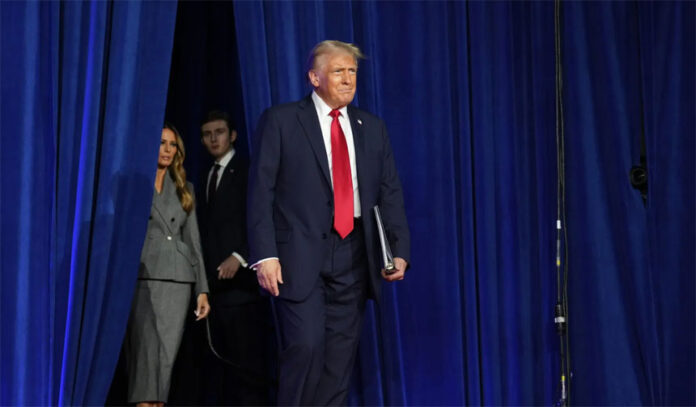IBL News | New York
With Donald Trump’s victory for a second presidential term and a Congress potentially under unified G.O.P. control, colleges feel politically and culturally weaker and fear that new proposed policies can have a wider impact, The New York Times wrote. Who President-elected Trump chooses to lead the Education Department could play an important role.
During his campaign, President-elected Trump said he thought that colleges needed to be reclaimed from “Marxist maniacs,” while his running mate, JD Vance, has described universities as “the enemy.” (Both men attended Ivy League institutions.)
In the last years, republicans have portrayed colleges as bastions of leftism, promising to reshape higher education by rooting out progressive ideology.
Additionally, universities have been under increasing pressure from lawmakers, and public confidence in colleges has fallen.
Last year, two Ivy League presidents resigned following the way they handled pro-Palestinian activists on their campuses. Other top university leaders have resigned amid criticism over protest responses.
The Heritage Foundation’s Project 2025 — an outline for President Trump’s second term that he has tried to distance himself from — calls for sweeping changes, like privatizing all student loans, rolling back protections for transgender students, and paring back diversity efforts on campus.
“The administration could wield control over the arcane but crucial accreditation process, which Mr. Trump has described as his “secret weapon” to force ideological changes. The president-elect has spoken of expanding the taxation of university endowments. And the new administration could scrap President Biden’s expansive student-debt forgiveness efforts and loosen regulation of for-profit colleges,” wrote The Times.
During his campaign, Mr. Trump floated a powerful idea: a new university called The American Academy. It would be a tuition-free online university competing with existing colleges and dole out bachelor’s degrees that all government agencies and federal contractors would recognize.
This new institution — which he said would be “strictly nonpolitical” with “no wokeness or jihadism” — would be paid for by expanding taxation of university endowments.
Some colleges depend heavily on their endowments to pay for student financial aid.
Another way of applying financial leverage would be to challenge the way colleges and universities are accredited and, therefore, become eligible to participate in federal student aid programs.
The current system is overseen by nongovernmental organizations approved by the federal government. Mr. Trump has discussed opening the process and allowing states to accredit universities directly. He might also approve new accrediting agencies that are friendlier to for-profit colleges, similar to actions taken during his first term.

 En Español
En Español











![OpenAI Released Apps that Work Inside ChatGPT and an SDK [Video]](https://iblnews.org/wp-content/uploads/2025/10/openaieventday-218x150.jpg)









